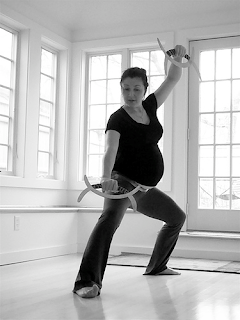Reports show that over 90 percent of all adolescents and almost 25 percent of all adults suffer from acne at some time. Acne affects males and females worldwide, regardless of nationality.
These most effective methods to combat acne include a combination of prevention and better skincare.
Here are 8 ways you can use to prevent and treat acne:1. ExerciseRegular exercise can help fight acne by fighting off negative stress levels that can come from negative self-esteem and depression. But avoid wearing tight lycra and nylon exercise outfits. These synthetic fabrics that tend to trap body moisture and heat, creating an ideal environment for bacteria to grow. Stick to loose clothing made of cotton or natural blends, and keep your sports gear and equipment clean.
2. Safe CosmeticsTo avoid pore-clogging and skin irritations that can contribute to acne, use products labeled "noncomedogenic" or "oil-free." Opt for "hypo-allergenic" perfumes and cosmetics to avoid allergic reactions and skin irritation. Coal tar derivatives, carmine and heavy cream in blushes can cause reactions.
Shimmering facial colors can contain a flaky mineral called mica that can cause skin irritations and clog pores. Use a lip gloss with a matte finish for less pore-clogging. The more the shine, the more then comedogenic content and the more your pores can clog.
3. Healthy DietStudies show that diet does not play a role in either the cause or the treatment of acne. However, what is best for your body is best for your skin. So make sure you get enough vitamins, minerals and supplements that have been known and recommended to prevent and help conquer acne breakouts.
These include * Vitamin A or Retinol (High doses are toxic)
* Vitamin B Complex
* Vitamin C
* Vitamin E
* L-Carnitine
* Zinc
A good quality brand name multivitamin will probably have the recommended vitamins and minerals that you need to help with acne prevention. Drinking plenty of fluids throughout the day and making good, healthy dietary food choices.
4. Hormonal TreatmentHormones (or a lack of them) during later years - especially for women - can play a role in acne flare-ups and prevention. One recent study showed that about 50 percent of women have acne, referred to as hormonal acne, problems during the week before their menstruation.
Treatment options include topical retinoids, oral antibiotics and Benzoyl Peroxide for teen years. For adults oral contraceptives or hormonal birth control pills and hormonal replacement therapy (HRT) may be helpful for women, combined with systemic or topical treatments, prescription or over-the-counter products and medications.
5. Healthy Skin RegimenAvoid harsh scrubbing or over-washing, because this can cause possible skin irritation or possible over production of oil to replace what's washed off, clogging pores in the process. Use products with gentle exfoliation ingredients and skip products that contain alcohol.
6. Acne ProductsSome of the more popular products on the market that can prevent acne include:
* Benzoyl Peroxide
* Proactiv� Solution
* Salicylic Acid
* Retinoids
* Antibiotics
* Oral Contraceptives
* Anti-Androgens
* Isotretinoin (Accutane)
7. ShavingShaving is actually an excellent way of exfoliating or removing dead skin to help with the prevention and spreading of acne instead of leaving the remains to clog pores. And for some light acne cases already in process, shaving can help rid whiteheads and blackheads from the face. Do not shave areas taht are sore or infected. Use a shaving cream for sensitive skin.
Shave with a sharp blade. Use gentle swipes instead of heavy pressure and go with the flow or "grain." A single-edged blade is better than a twin-blade razor. Electric razors may not shave as close to the skin, but they help with the prevention of acne and other skin breakouts and flare-ups better.
8. StressStress includes external and internal stressors. External Stressors are those that compromise your skin's ability to heal, like oily make-up and too much sun. Internal stressors like anxiety, fear, low self-esteem, depression and a variety of other internalized emotions, can trigger chemical reactions inside your body that can result in acne flare-ups and other skin irritations.
To combat internal stressors and prevent acne problems, get plenty of rest and sleep. Try to maintain regular hours. Keep a check list of "Things that Calm You" handy for stressful times, like reading a book, resting, listening to music, taking a walk, going out for an ice cream cone, etc.










